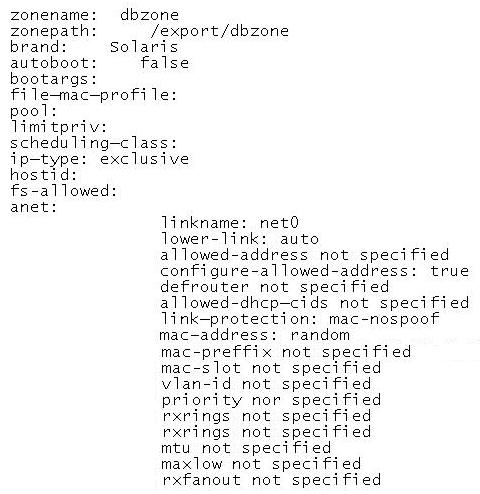

You have completed configuring a zone named dbzone on your Solaris 11 server. The configuration is as following:
The global zone displays the following network information:
The zone has never been booted. Which three options correctly describe this zone?
dlicheri
7 months, 1 week ago